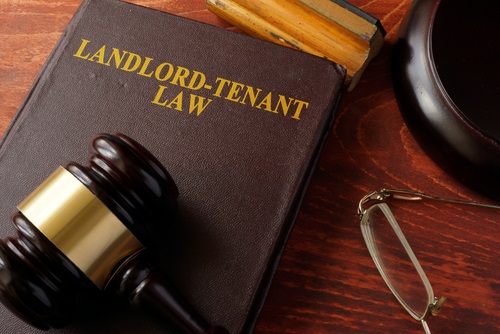Breaches of Repair Covenants in Commercial Leases and Forfeiture
Update: Coronavirus Act 2020
Please be aware that the Coronavirus Act 2020 might affect a landlord's right to proceed with forfeiture during the pandemic. At time of writing there is a moratorium on forfeiture until 30 September 2020.
This is an evolving situation so please contact us for up to date information.
Breaches of repair covenants
Depending on the wording of a lease a landlord might have the right to enter the property to carry out some repair works. If the lease allows the landlord to carry out the necessary works to the property in question then it would have to give a notice to the tenant before commencing the works. The landlord might also have the right to claim the cost of the repair works from the tenant.
If, however, the lease does not allow the landlord to carry out any repairs, then the landlord's conduct in undertaking any repairs might constitute a trespass or breach of a quiet enjoyment covenant.
Most commercial leases contain repairing covenants for a tenant to comply with. Breach of those covenants might give a landlord an opportunity to claim damages from the tenant. However, there are certain restrictions that might invalidate the landlord's claim for damages. For example, a landlord is not allowed to claim damages unless it:
- has served a notice on the tenant referring to the particular breach in the lease, requiring the tenant to remedy the breach; and
- referred in the notice to the tenant's rights.
The tenant will then have 28 days to serve a counter-notice on the landlord. If the tenant serves the counter-notice, then the consent of the court will be required before the landlord can forfeit the lease or claim damages for the breach of the repairing covenant.
Forfeiture
Forfeiture or re-entry is the landlord's right to terminate the lease if:
- the tenant is in breach of any provisions of the lease; and/or
- the tenant becomes insolvent.
Forfeiture can take place either by peaceable re-entry or by commencing court proceedings for possession of the leased property.
Peaceable re-entry can take place by the landlord changing the locks when the tenant is not in the property. Usually, this is carried out by commercial bailiffs. Alternatively, the landlord can commence court proceedings for possession of the leased property to obtain a possession order which would permit the landlord to enter the property and terminate the lease.
Landlords should be careful when proceeding with forfeiture especially if there is a risk that the property will be vacant for some time. In other words, the landlords should consider the letting market before taking any steps to forfeit the lease.
Landlords cannot pursue a right of forfeiture for breach of covenant, other than for non-payment of rent, unless it serves a section 146 notice.
Before instigating any forfeiture proceedings landlords should determine whether the right of forfeiture has not been waived.
Waiver of the right to forfeit
When a landlord determines that the right to forfeit has arisen, the landlord should be careful not to do anything that would invalidate or waive its right. Normally, waiver will occur in the following situations:
- where the landlord has knowledge of the tenant's breach of the lease; and
- the landlord performs an unequivocal act recognising the lease as continuing to exist, for example, accepting rent payments from the tenant or otherwise treating the lease as ongoing.
Relief from forfeiture
Once a landlord has exercised its right to forfeit the lease, a tenant or lender will have the right to apply for relief from forfeiture.
If, the tenant succeeds with its right to claim relief from forfeiture, the lease will be restored to where it was prior to the forfeiture. Generally, the court will grant relief if:
- the tenant pays compensation for the breach of the lease; and
- the court is satisfied that the tenant will perform its obligations under the lease going forward.
Get in touch
For more information and advice, please contact Disputes Solicitor Richard Darbinian, by email at richard.darbinian@wards.uk.com or by telephoning 0117 929 2811.


